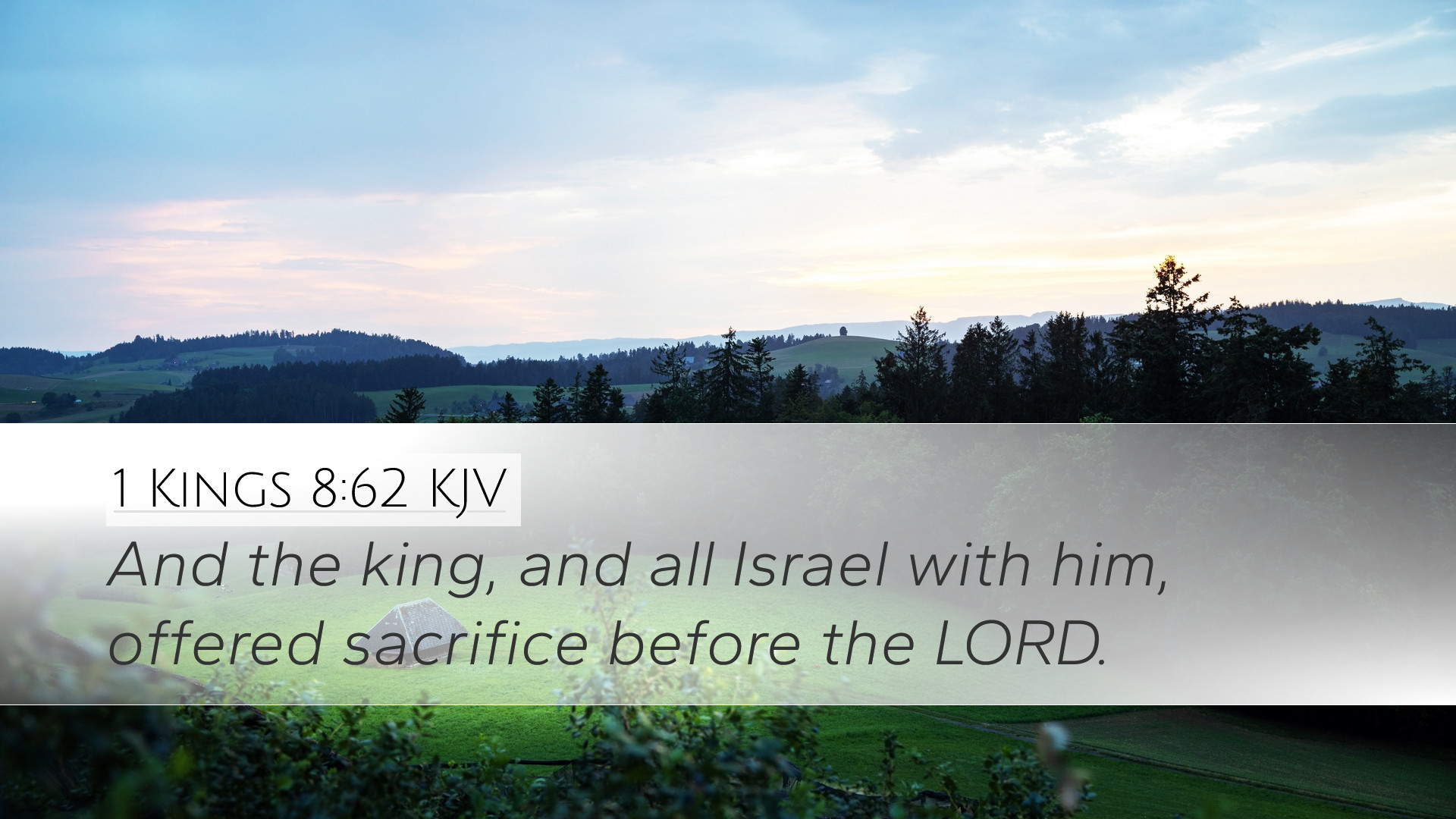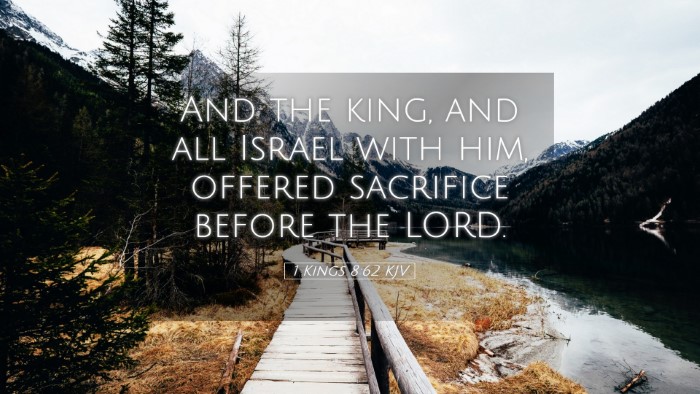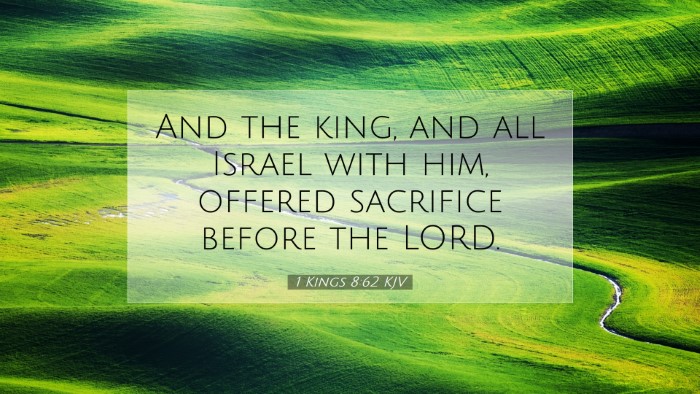Commentary on 1 Kings 8:62
Verse Context: 1 Kings 8:62 states, "Then the king and all Israel with him offered sacrifice before the LORD." This verse is positioned within the context of Solomon's dedication of the temple, marking a significant moment in Israel's history.
Hebrew Context and Interpretation
Hebrew scholars highlight that the term used for "king" (מֶלֶךְ, melekh) denotes a sovereign leader, emphasizing Solomon's authority during this ceremonial act.
The act of offering sacrifices is rich in theology and symbolism, pointing to the covenant relationship between God and Israel.
Significance of the Sacrifice
Matthew Henry observes that the sacrifices made at this dedication were multifaceted:
- Acknowledge God's Presence: The sacrifices were a way to invite God's presence into the new temple.
- Symbol of Worship: They were a proper response to the fulfillment of God’s promise, providing a means to express devotion.
- Community Engagement: All of Israel participated, highlighting the collective worship of the nation.
Theological Implications
Albert Barnes reflects on the broader theological implications of the sacrifices offered by Solomon and the people:
- Divine Relationship: The act signifies the strengthening of covenantal ties between God and His people.
- Centrality of Worship: It reinforces the importance of centralized worship in the temple versus the individualistic approaches previously prevalent.
- Foreshadowing Sacrifice: These sacrifices can also be seen as foreshadowing the ultimate sacrifice of Christ.
Interpretation of Worship
Adam Clarke provides a nuanced perspective on the nature of worship in this context:
- Culmination of Hope: The dedication symbolizes the culmination of years of anticipation for a stable place of worship.
- Public Witness: It acts as a public declaration of loyalty to God, serving to unite the people under a shared national and spiritual identity.
- Inclusive Nature: The extent of the offerings reflects the inclusivity of worship, as all segments of society offered sacrifices.
Practical Applications for Today
In our contemporary setting, parallels can be drawn from this rich historical moment:
- Community Worship: Pastors are encouraged to foster communal worship—encouraging participation as a reflection of collective faith.
- Intentional Offerings: Individuals are reminded to approach God intentionally in prayer and offering, acknowledging His presence in their lives.
- Symbolic Acts of Faith: Just as Israel gathered to offer sacrifices, modern believers are called to symbolic acts that reflect faith and devotion in tangible ways.
Conclusion
1 Kings 8:62 invites reflection on the nature of worship, sacrifice, and community. By engaging with the insights from Matthew Henry, Albert Barnes, and Adam Clarke, one can appreciate the depth of meaning found in this single verse—pointing toward a deeper relationship with God and a unified expression of faith.


